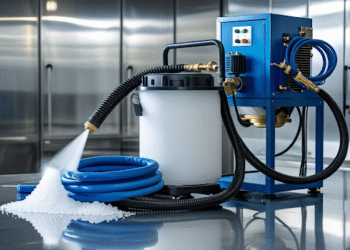The legislation surrounding drug use in the United States has changed dramatically in recent years. What was once considered illegal with zero tolerance has now been legalized in several states. Because this legislation is handled at the state level, laws on the matter vary drastically in different parts of the country.
With a change in drug legalization comes the need for drug testing laws to adapt to these changes. Employee drug testing laws specifically change based on the type of worker and where they are employed. For example, federal employees are covered by the Drug-Free Workplace Act of 1988, while private employees’ coverage varies by state. The substances most commonly abused also vary drastically by state. Many southern and midwestern states have been plagued by opiate use, while more northern and west coast states use hallucinogens and alcohol. Due to how unique the drug use landscape of each state truly is, it is important that state and even local laws reflect the wants and needs of the residents.
Employee drug testing is only considered legal by specific legislation in 5 states: Montana, South Dakota, Ohio, Tennessee, and South Carolina. In the majority of states, the practice is legal but with caveat,s and in 11 states, there is no law prohibiting or allowing drug testing for US employees. However, in the past year, over 500 new bills related to drug testing were introduced, demonstrating just how quickly employment drug testing laws are changing in the United States. In order to understand how we got here and the future of lenient drug legislation, it is important to discuss marijuana as a pioneering legal substance in many states.
In 2012, Colorado and Washington became the first states to legalize marijuana for recreational use. Although it took time for other states to follow suit, now, as of 2024, 19 more states and DC have legalized recreational marijuana. Additionally, 38 states and DC also have legalized marijuana for medical use, making the majority of the United States fairly tolerant of the substance. As a result of this change, positive marijuana tests have increased by over 45% in the past 5 years. Although these changes have liberated many users and changed the way that medicine is approached, professionals warn that this increased positivity rate could have serious implications for safety-sensitive industries. In fact, recreational marijuana laws have been associated with a 10% increase in workplace injuries amongst young workers. In order to protect our most vulnerable workers and to promote a safe and compliant workplace, many state leaders are beginning to implement new testing and anti-tampering measures.
There are several reasons why employee drug testing may be administered, each with different positivity rates as drug usage continues to run rampant through many of our industries. Research has found reasonable suspicion to be the most commonly positive testing circumstance. However, post-accident and follow-up are other commonly positive tests, showing that drug usage is occurring for several reasons and at all times. Tests are also administered in preparation for a return to duty, during pre-employment screening, or even randomly. Due to these high positivity rates, it is not uncommon for people to attempt to tamper with the testing process or the tests themselves to change the outcome. In fact, between 2022 and 2023, there was a 6x increase in tampered tests. Because of this, new cheating policies may go into effect in several US states, especially those with the current highest drug positivity rate.
Ten US States have anti-cheating policies in place, including Oregon, which is also one of the states with the most positive drug tests at a 6.5% positivity rate. These policies are being implemented from coast to coast, using new technology to catch foul play and discourage workers from tampering with samples during the testing process. Anti-cheating measures for drug testing may include detailed check-in times, adulterant tests, dilution detection and more. With these new measures in place, there are more opportunities for vulnerable industries and employees to ensure their safety while at work.
More and more industries are taking advantage of these new anti-cheating policies and are testing their workforce. The most compromised fields are currently those that involve manual labor, the use of heavy machinery, and niche skills that require focus and may become dangerous for an impaired worker. Leading the charge on workplace testing is currently the energy utilities industry, followed closely by transportation and warehousing. Some other related fields that are also beginning to enforce drug testing are manufacturing, wholesale trade, and construction. These workers need to commit to sobriety in order to keep themselves and others out of harm’s way. Additionally, many of these workers are considered essential, impacting our daily lives in ways that many take for granted. Because of this, it is all the more important to prepare these employees for the future of drug legislation and drug testing.

Source: USDrugTestCenters.com













